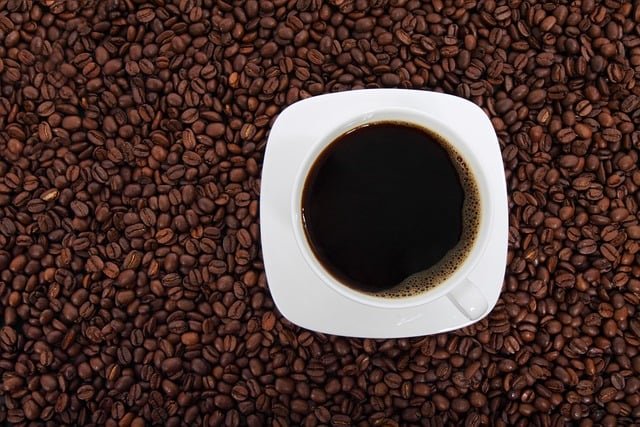In today’s fast-paced world, caffeine has become a staple in our daily routines. Whether it’s that essential morning cup of coffee, a mid-day soda, or a late-afternoon energy drink, most of us have a go-to beverage to keep us going. In fact, an astonishing 94% of U.S. adults report consuming caffeinated drinks, and 64% indulge every single day. But with so much reliance on this widely consumed stimulant, a pressing question arises: how is caffeine affecting our sleep?
A Nation of Caffeinators
The numbers speak volumes. Over half of caffeine drinkers reach for coffee as their preferred pick-me-up, followed by soda, tea, and energy drinks. For many, like Kacey Mead of Jacksonville, Florida, caffeine isn’t just a casual indulgence—it’s a lifeline. As a mother of three, including 1-year-old twins, Kacey carefully schedules her caffeine intake, beginning with a cup of coffee at 6 a.m. and ending with a green tea-based energy drink in the afternoon. Despite sticking to her self-imposed “no caffeine four hours before bed” rule, she still finds herself needing to scale back when her consumption creeps up.
Her experience reflects a common cycle: easing in with moderation, gradually increasing intake, and eventually cutting back when side effects—like headaches or jitteriness—kick in.
Why We’re Hooked
So, what keeps us coming back for more? According to 70% of survey participants, it’s a mix of taste and the stimulating effect caffeine has on alertness. Dr. Abhinav Singh, sleep medicine physician and author of Sleep to Heal, points out that America, a country known for its relentless work ethic and love of marketing, is also a culture deeply sleep-deprived. Caffeine, he explains, is the go-to solution for many who are simply “tired of being tired.”
Drinks like pumpkin spice lattes and energy beverages don’t just taste good—they offer a quick fix for chronic fatigue, making them both appealing and habit-forming. Unfortunately, this habitual use can mask underlying sleep issues, pushing the cycle of sleep deprivation even further.
Timing is Everything
Understanding how caffeine works is key to knowing why it can interfere with sleep. The “half-life” of caffeine—the time it takes your body to eliminate half of it—ranges from 3 to 7 hours. On average, it’s about 4 to 6 hours. That means if you have a cup of coffee at 8 a.m., a quarter of that caffeine could still be circulating in your system by 8 p.m.
This timing can be critical. While some, like Steve Depew of Mississippi, have adapted their habits—switching to half-caffeinated coffee and cutting off consumption before noon—others are less aware of how caffeine lingers in the body. Steve, a retired heart surgery patient, reduced his intake on his doctor’s advice. Now, he enjoys the taste without compromising his heart health or his sleep.
Sleep by the Numbers
Interestingly, those who stick to tea seem to fare better. A full 75% of tea drinkers report getting the recommended seven or more hours of sleep per night, compared to 58% of coffee drinkers. Non-caffeine consumers, unsurprisingly, report fewer sleep-related issues across the board. Among caffeine users, 35% experience daytime drowsiness, and 31% struggle with insomnia—numbers that drop to 27% and 22%, respectively, among those who steer clear.
Yet, despite these statistics, there’s a noticeable disconnect in perception. While 68% of non-caffeine drinkers believe caffeine affects sleep, only 40% of those who consume it regularly agree.
Kacey Mead, however, has learned to read her body’s signals. “I know when I’ve pushed too far,” she says. “Even though I’m tired all the time right now, I won’t risk having caffeine too late. I used to get racing thoughts at night—thinking through to-do lists and stressing about the next day.”

She’s not alone. Nearly half of survey respondents report avoiding caffeine within one to four hours of bedtime. Still, a surprising 14% drink it right up until they go to sleep.
Finding the Right Balance
Here’s the good news: enjoying caffeine doesn’t have to mean sacrificing sleep. The key is balance and timing. Knowing your own sensitivity and adjusting accordingly can help you keep both your energy and sleep cycles in harmony.
Dr. Singh recommends monitoring your full caffeine intake—not just your coffee. “It’s not just in drinks,” he says. “Caffeine hides in chocolate, energy supplements, even skincare products. Be mindful. Use caffeine as an ally, not a crutch.”
So before you cling to your cold brew in desperation, consider this: caffeine can enhance your day without ruining your night—if used wisely. Listen to your body, pay attention to timing, and don’t be afraid to switch to decaf when needed. After all, the best brew is the one that lets you both thrive by day and rest by night.

